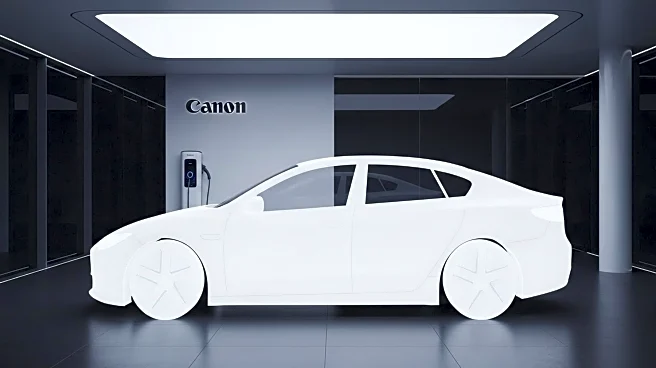What is the story about?
What's Happening?
A resident in Colorado has leased a new Volkswagen ID.4 Pro for approximately $100 per month, taking advantage of the deal just before the U.S. EV tax credit was phased out. This lease arrangement highlights the affordability of electric vehicles, countering the perception that EVs are prohibitively expensive. The ID.4 Pro, with a 77 kWh battery and an all-wheel-drive range of about 263 miles, offers significant energy efficiency compared to traditional internal combustion engine vehicles. The lessee, who previously owned a 2006 Escalade with a fuel efficiency of 14 mpg, now benefits from the ID.4 Pro's 102 mpge rating, which is over seven times more efficient. The lease includes a mileage limit of 7,500 miles per year, which suits the driver's needs as he drives less than that annually. Charging is facilitated by nearby public EV chargers, as the lessee resides in an apartment without home charging capabilities.
Why It's Important?
This development is significant as it demonstrates the potential for electric vehicles to become more accessible to consumers, especially as federal incentives for EVs are reduced. The affordability of the ID.4 Pro lease could encourage more consumers to consider EVs, contributing to a reduction in reliance on fossil fuels and associated environmental and health impacts. The shift from a low-efficiency vehicle like the Escalade to a high-efficiency EV can lead to substantial savings on fuel costs and reduce emissions. This transition aligns with broader efforts to promote sustainable transportation and reduce air pollution, which is linked to numerous health issues. The availability of affordable EV options may also stimulate market competition, driving further innovation and price reductions in the EV sector.
What's Next?
As federal incentives for electric vehicles phase out, dealerships may need to explore alternative strategies to maintain consumer interest in EVs. This could include offering competitive lease deals or emphasizing the long-term cost savings and environmental benefits of EV ownership. The transition to electric vehicles is likely to continue, supported by state-level initiatives and the increasing availability of renewable energy sources for charging. Consumers may also see advancements in EV technology, such as improved battery life and charging infrastructure, making EVs even more appealing. Stakeholders in the automotive industry, including manufacturers and policymakers, will need to address challenges related to EV adoption, such as charging infrastructure and consumer education.
Beyond the Headlines
The shift towards electric vehicles has broader implications for public health and environmental policy. Reducing reliance on fossil fuels can lead to significant improvements in air quality, decreasing the incidence of respiratory diseases and premature deaths associated with air pollution. The transition also supports efforts to combat climate change by reducing greenhouse gas emissions. As more consumers adopt EVs, there may be increased pressure on governments to invest in renewable energy infrastructure and support sustainable transportation initiatives. This movement could also influence cultural perceptions of vehicle ownership, prioritizing environmental responsibility and energy efficiency.

















